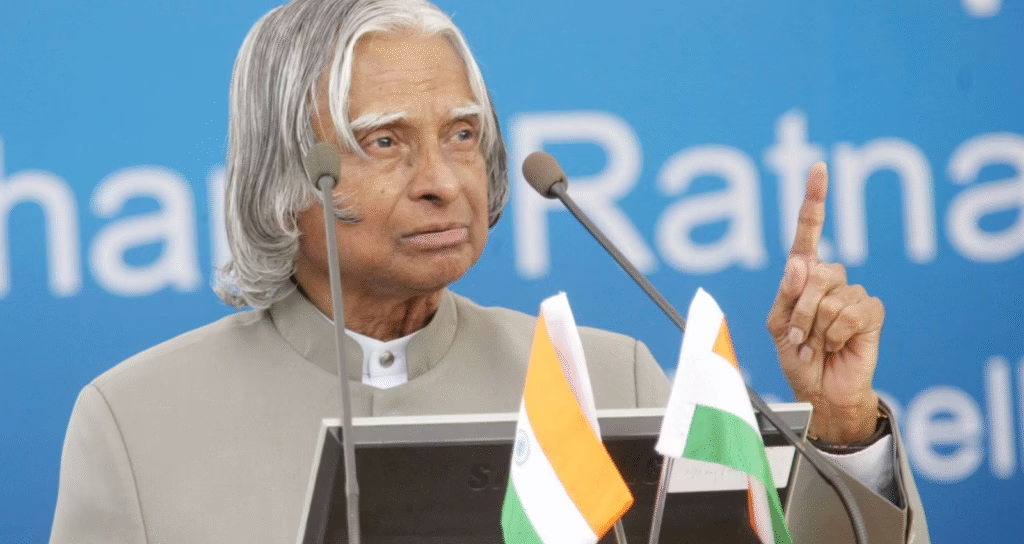
10 Inspiring Thoughts by Dr. A.P.J. Abdul Kalam: A Journey Through His Wisdom
Dr. A.P.J. Abdul Kalam was a unique blend of scientist, visionary leader, teacher, and humble humanitarian. While no one can exactly replace him, there are several globally respected personalities who share similar traits in science, leadership, humility, education, and nation-building.
10 inspiring thoughts by Dr. A.P.J. Abdul Kalam, with deep meaning, background context, practical application, and real-world relevance for students, professionals, educators, and dreamers.
“Dream is not that which you see while sleeping, it is something that does not let you sleep.”
Meaning & Insight:
True dreams are not passive fantasies. They are powerful inner desires that ignite action and make you restless to achieve something meaningful.
Context:
In a world full of distractions, people often confuse ambition with wishful thinking. Kalam encourages action-oriented dreaming.
Application:
Define a specific goal—like starting a business, becoming a teacher, or building a product—and let it guide your daily efforts.
Example:
A young man from a rural town aspires to become a mechanical engineer. He studies under a streetlamp due to no electricity, cracks his entrance exam, and becomes a top engineer in a reputed firm.
“All of us do not have equal talent. But all of us have an equal opportunity to develop our talents.”
Meaning & Insight:
Natural gifts vary, but the ability to improve, learn, and grow is accessible to all.
Context:
Many lose motivation comparing themselves to others. This quote shifts focus from innate talent to continuous learning.
Application:
Use books, free courses, practice, and mentorship to develop your abilities instead of feeling discouraged by others’ success.
Example:
A student weak in maths uses online tutorials daily for six months. He scores above average in board exams—not by talent, but by disciplined effort.
“To succeed in your mission, you must have single-minded devotion to your goal.”
Meaning & Insight:
Success requires consistency and focus. Multitasking and distractions dilute progress.
Context:
In the digital era, people often chase many goals at once. Kalam stresses depth over breadth.
Application:
Choose one major goal (e.g., cracking an exam, writing a book) and structure your daily routine around it.
Example:
An entrepreneur sets a goal to launch an app. She avoids taking new freelance projects for 3 months and focuses solely on building the app, which later becomes a success.
“You should not give up and we should not allow the problem to defeat us.”
Meaning & Insight:
Problems are inevitable. Quitting is not the solution—persistence is.
Context:
Life throws obstacles—financial, emotional, or social. This thought strengthens mental resilience.
Application:
Break big problems into smaller ones, seek help when needed, and keep trying different solutions.
Example:
A small shopkeeper’s store floods during monsoon. He starts a WhatsApp-based home delivery system. Business resumes even without a physical shop.
5. “If you want to shine like a sun, first burn like a sun.”
Meaning & Insight:
Behind every success lies intense preparation, dedication, and sacrifice.
Context:
People admire success but ignore the struggle behind it. This quote shows that suffering is part of greatness.
Application:
Be ready to give time, energy, and effort—especially when no one is watching.
Example:
A UPSC aspirant studies 12 hours a day, avoids social media, and practices mock tests regularly for 2 years before finally clearing the exam.
“Man needs his difficulties because they are necessary to enjoy success.”
Meaning & Insight:
Success without challenges feels shallow. Struggles give depth and satisfaction to achievements.
Context:
When facing hardship, many people feel cursed. Kalam reframes it as a valuable experience.
Application:
Treat obstacles as learning opportunities. Reflect on what they teach you, and grow from them.
Example:
A college student loses his scholarship due to poor health. He restarts his year, works part-time, and finishes his degree with honors—making the journey more meaningful.
“Let us sacrifice our today so that our children can have a better tomorrow.”
Meaning & Insight:
Building a better future often means giving up short-term comfort for long-term impact.
Context:
Societies grow when one generation uplifts the next. Kalam valued this deeply in education, environment, and innovation.
Application:
Invest time in children’s education, use resources responsibly, and volunteer for social causes.
Example:
A couple foregos luxury spending to enroll their daughter in quality education. She later becomes a software engineer and uplifts the whole family.
“Excellence is a continuous process and not an accident.”
Meaning & Insight:
Excellence is not luck or a one-time achievement. It comes from consistent, intentional practice.
Context:
Many assume people are “born great.” Kalam reminds us that greatness is practiced daily.
Application:
Improve 1% each day—be it in communication, health, skill, or discipline.
Example:
A writer writes 300 words every day for a year. By the end, he completes a full book, secures a publisher, and becomes an author.
“Thinking should become your capital asset, no matter whatever ups and downs you come across in life.”
Meaning & Insight:
Your most valuable tool is your ability to think clearly and creatively.
Context:
While resources may fail, critical thinking enables problem-solving, innovation, and survival.
Application:
During challenges, pause and think. Don’t react—respond with logic and strategy.
Example:
During COVID lockdown, a yoga instructor starts Zoom classes using basic tech. Her thinking—not money—kept her work going.
“Great dreams of great dreamers are always transcended.”
Meaning & Insight:
When you dream with passion, your efforts often create results bigger than you imagined.
Context:
A vision may start with an individual, but it impacts many—like Kalam’s own dream for a developed India.
Application:
Pursue goals that benefit not just you, but also your community, your team, or future generations.
Example:
A tech student starts a coding club in college. Years later, it becomes a formal incubator supporting hundreds of startups.
